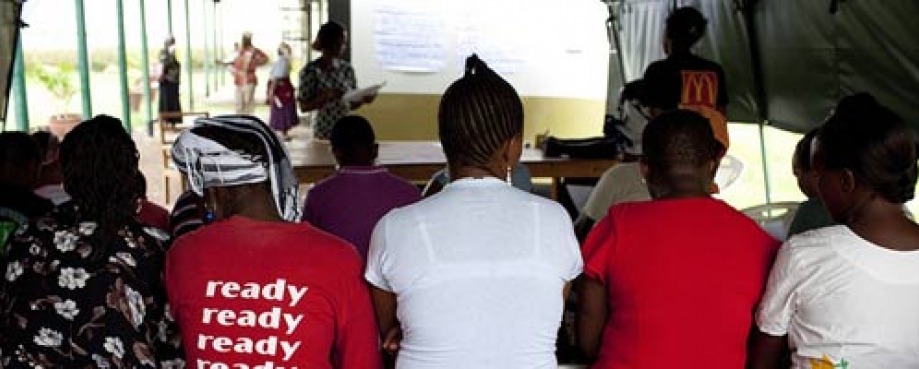
I work for an organisation called the Wine and Agricultural Industry Ethical Trade Association (WIETA) in South Africa. This year we entered a partnership with ETI to roll out their Supervisor Training Programme across South Africa's Western Cape.
I was recruited in March 2011 as project manager of this Comic Relief-funded project. Our first job was to carry out extensive stakeholder consultations across the fruit, flower and wine sector. We invited growers, producers, exporters, South African retailers as well as trade unions and NGOs to tell them about the project and invite them to be involved.
From those meetings we then set up a multi-stakeholder advisory group, consisting of industry and civil society representatives. We were keen to draw in people with a range of skills, including training and HR expertise as well as those with in-depth knowledge of how the industry operates. It has worked well so far.
Adapting the training materials and recruiting trainers
The next step was to adapt the training to suit the literacy and educational levels of farm-based supervisors and farm worker team leaders in South Africa. These are often lower than in Kenya and the UK, where ETI first piloted the training.
The initial ETI training material has been greatly supplemented with engaging and interactive visual images, role play exercises and practical toolkits and videos, all suited to an oral audience with lower literacy levels.
We also adapted the materials to make them more appropriate to the South African context, so they resonate better with trainees.
We have recruited a team of experienced trainers and assessors. It was really important not just to look at peoples' training skills, but also to find people with an in- depth understanding of issues of gender relations, sexual harassment and discrimination and diversity management within the South African context.
In the interview process, as soon as the interview panel sensed that a potential candidate would not be in a position to suspend their own prejudices within a training session, or bring their own developmental ‘baggage' with them, we knew that they would not make the perfect fit for the ETI Supervisor Training team.
‘Wooing' farmers
In the South African context, it's important not to force people to do things. It's about wooing people, building trusting relationships and winning over their confidence.
Throughout the year we have also spent a lot of time marketing the training to farms, cellars, packhouses and other stakeholders.
As the training is funded, we thought beneficiaries would jump at the chance of coming on board. But generating interest from the farms has been surprisingly challenging given that there is a paucity of skills in the industry to deal with issues of this nature, and training budgets are pretty small.
I think there are several reasons for this. For one thing, most farmers are very focused on making sure they meeting their customers' minimum technical requirements, which allow them to continue to export. It's not that they don't care about the issues the training deals with - it's just not seen as a priority.
Farmers have also been sensitive about the research we've been carrying out into these extremely delicate issues. We have spent a lot of time explaining to them that we are not carrying out audits, and that the information that we are collecting will in fact benefit them in terms of measuring improvements - and that all information is treated with the utmost confidence.
So we have approached our opening conversations with farmers very gingerly. For example, we'll start to have a chat with a farmer about the reason why only men can drive tractors, and how this can create tension, or the pros and cons of using seasonal workers.
We explain that enabling supervisors to start to deal with these kinds of issues helps create a more harmonious environment and means that farmers can get on with their day jobs, keep production lines going and spend less time fire-fighting workers' issues.
In the South African context, it's important not to force people to do things. It's about wooing people, building trusting relationships and winning over their confidence.
Initially, all this work was very slow and painful. But throughout the year farms in some sectors - particularly the wine sector - have really embraced the project, which is really exciting.
I'm now really looking forward to next year, when we will start to implement the training.
